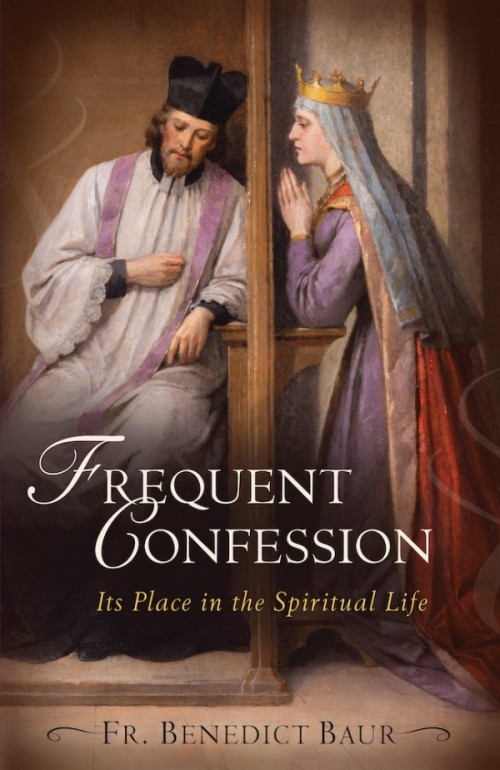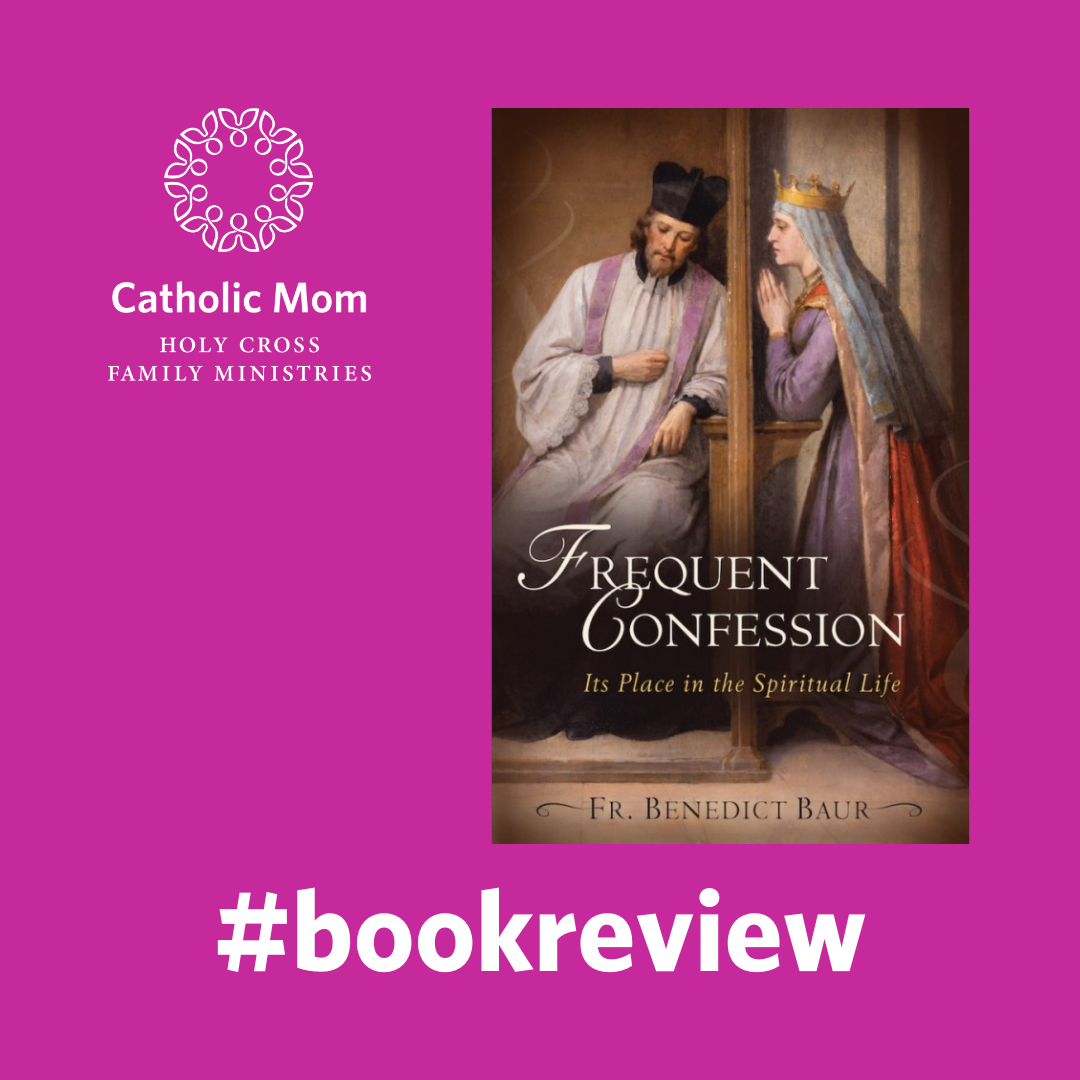
Julie Storr reviews a new book by Fr. Benedict Baur that teaches how to use our time in Reconciliation to grow spiritually.
I’m a fan of the Sacrament of Reconciliation. I thought I was pretty accomplished in my practice of celebrating this Sacrament.
After I joined the Church, this left-brain of mine wanted to know just how reconciliation worked. Three books later, I thought I had it all down pat. Turns out that even with a monthly visit to the confessional, there is always more to learn.
As I read Frequent Confession: Its Place in the Spiritual Life by Fr. Benedict Baur, I learned there were more tips of the trade, so to speak, to use my time in Reconciliation help me grow spiritually.

The first four chapters of Frequent Confession discuss the meaning, purpose, and the fruit of frequent Confession. The book is geared towards the people who are not struggling with mortal sins, but instead trying to overcome the venial sins, the little things that can make us stumble in our spiritual life. The person has changed their attitude about the Sacrament as they have gone from confessing their “laundry list” of sin to repairing their relationship with God.
Don’t expect to breeze right thought these chapters: they are filled to the brim with sound spiritual advice to help you recognize how venial sin affects us and how to overcome it.
It is true that there are many ways to have venial sins forgiven, receiving the Eucharist, reciting the Confiteor, and praying the Lord’s Prayer, are just some of the examples. However, bringing these sometimes these little things to the Sacrament of Reconciliation brings a grace that is only available in this Sacrament. This grace strengthens us for the battle to overcome not only the big things, but the small things as well.
I was struck by the author’s simple instruction, when spending time in an examination of conscience, we should ask ourselves, “Where is my heart?” When we’re uptight, angry, or impatient, to stop and ask, “Where is my heart right now?” I can think of no quicker way to stop a venial sin and to renew the mind, than this little heart-monitor, which also doubles as renewing the mind.
The author also instructs that if we have not committed any mortal sin since our last Confession, we are not obliged to examine our conscience, but we should find sufficient matter for absolution to receive the grace of the Sacrament.
At this point, I decided that I could see myself becoming somewhat scrupulous; however, Fr. Baur, suggests sticking to your weak points, just one at a time, and starting there. He advises us to distinguish between what is essential and nonessential, and what is important and not important. A daily examination of conscience can make this process more fruitful.
The remaining 26 chapters are dedicated to a specific consideration per chapter. Topics include overcoming deliberate venial sin, contrition, imperfections, and a chapter that sparked my interest, the sins of omission.
We pray it in the Act of Contrition, “the things I’ve done and the things I’ve failed to do,” but I came to learn that it means more than I’ve considered. The author explains that sins of omission are not only the good things we should do but don’t, but it also includes those moments we have time for prayer and don’t, those moments we omit to turn out thoughts to God. This may be a great place to start my own journey into venial sins.
Each of the 26 shorter chapters end in a prayer, making this book perfect for time in adoration or for a starting point for journaling.
I enjoyed the time I spent in Frequent Confession, and I am blessed to have a resource to help me replace those venial vices with stronger virtues.

Copyright 2022 Julie Storr
Images: Canva
About the Author

Julie Storr
Julie Storr surprised herself when she went from “never ever going to be Catholic” to a lover of the lectionary. Her thirst for the Faith is never quenched and she is always surprised at the depth of the relationship with Christ that one can find in the Catholic Church. She and her husband live in Pocahontas, Iowa. Visit her website at LectioTheLiturgy.com.


.png?width=1806&height=731&name=CatholicMom_hcfm_logo1_pos_871c_2728c%20(002).png)
Comments